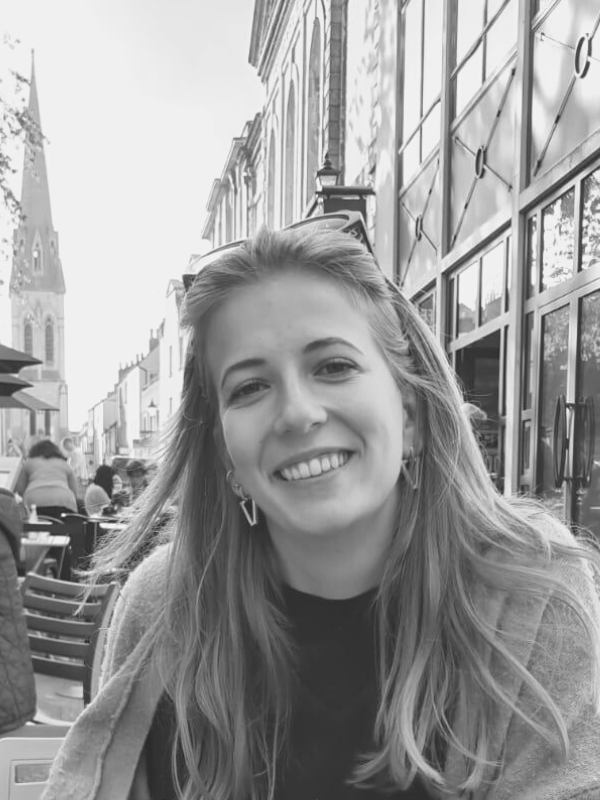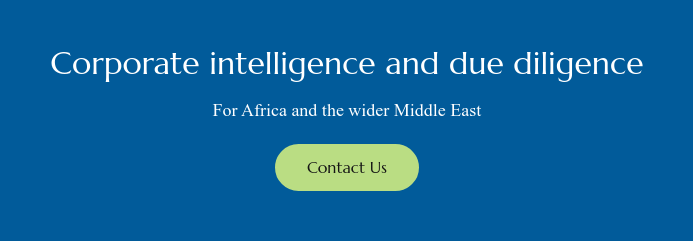Saudi Arabia pushes on with giga-projects supported by web of local contractors
Read moreThe winners and losers of MbS’s plan for Saudi to join the global economic premier league
Football star Cristiano Ronaldo, now plying his trade for Riyadh-based club Al Nassr FC, recently speculated that Saudi Arabia could in the future have one of the five best leagues in the world. This sounds like it could have been lifted from a list of key objectives drawn up as part of the kingdom’s Vision 2030 development programme, along with other more formally stated targets such as becoming one of the 15 biggest economies in the world.1
With each of the GCC petrostates acutely aware of the need to diversify their economies in the face of finite hydrocarbon resources and increasing pressure to reach net zero, arguably none is better placed to make this transition than the kingdom of Saudi Arabia. Already the largest economy in the region, the kingdom has the population, territory and resources to achieve true scale and start competing in the global league of major economies. The Vision 2030 plan – developed with the support of an army of consultants from McKinsey, Boston Consulting Group and the like – includes diversification goals for its financial services sector, healthcare sector, housing and infrastructure, tourism and technology.2
There will of course be significant challenges along the way – not least in how to make its bulging youth demographic (over half of the Saudi population are under 25) economically productive – but according to the IMF, diversification is on track: last year the economy grew by 8.7%, of which 4.8% was non-oil GDP growth.3
The Public Investment Fund
It also helps that Saudi Arabia has one of the richest sovereign wealth funds in the world, with estimated assets of over £550 billion, in the Public Investment Fund (PIF). Chaired by the kingdom’s crown prince and de facto ruler Mohammed bin Salman, the Fund has turned heads with its overseas investments, ambitious domestic infrastructure projects and its efforts to attract both people and capital to the country. Since 2019 tourists have been permitted to travel to the country, developers like Red Sea Global are building a string of luxury resorts, and a growing list of soccer stars have already followed in Ronaldo’s footsteps. And in July this year the golf world was astonished when it was announced that the PGA tour would merge with its rival (and PIF-funded) LIV Golf – effectively making Saudi Arabia the largest stakeholder in the sport of golf. Alongside this and other sporting investments, Riyadh is currently campaigning to host the World Expo in 2030.4
Competition for contracts for these massive development projects has been predictably fierce, although based on who has been successful to date it is clear that some traditionally powerful merchant families have lost out while other less well-known names are finding favour with the MbS-led administration.
The Golden Circle
The heavy construction industry, with giga-projects such as NEOM, Red Sea Global and the New Murabba development now in full swing, has seen significant upheaval in recent years. In February PIF announced a total investment of US$1.3 billion into the following companies:5
- Nesma & Partners Contracting Company, founded in 1981, is run by the Al Turki family, a prominent family office that has ties with MbS. Its founder, Saleh Al Turki was appointed the mayor of Jeddah by royal decree in 2018. In 2020 it won a contract to build a new airport on the Red Sea.
- El Seif Engineering Contracting Company was founded in 1951 by Khaled El Seif who also owns multiple large corporations in Lebanon. The company specialises in building high rise buildings and towers in the region6, and the family is well connected: his youngest daughter, Rajwa El Seif married the crown prince of Jordan in June.7
- Al Bawani Holding Company was founded by Abdul Moeen Al Shawaf in 1991. He has founded many successful companies since he first won a contract to supply materials for the Bahrain-Saudi Causeway. The holding company’s operations extend outside the GCC to Turkey and the UK where Abdul Moeen’s third son, Nasser Al Shawaf, is the managing director of Rasmal Investment, which is building Park Crescent West, a luxury development of apartments and townhouses overlooking Regent’s Park in London.8 The company’s principals are well connected to the House of Saud: Al Shawaf was granted permission to open one of the earliest Saudi publishing houses, he has received honours from the late King Abdullah for the books he has written and his wife used to run a charity with the late King’s wife.
- Al Mabani General Contractors Company, founded in 1972 by the late Kamal Adham, the founder of the Saudi intelligence services and an adviser to kings Faisal and Khalid. The company’s turnover rose from US$538m in 2014 to US$800m in 2020, which coincided with MbS’s reshuffle of the Saudi business elite. The company has been engaged on these projects.
None of these companies is recently incorporated, but their being in the position to tender for large government contracts has coincided with MbS’s ascent to power.9
Binladin and others on the backbench
While some have benefited from economic diversification, many traditionally powerful merchant family-run companies, who built the country’s infrastructure during the oil boom in the 1970s are being sidelined. In 2017 the Saudi government’s unprecedented ‘anti-corruption drive’ saw many powerful and wealthy members of the business community held in the Riyadh Ritz-Carlton for several months. Accused of corruption, many had to sign over some of their assets to the state. Those who were targeted then are, for the most part, still sidelined now even during the ongoing flurry of investment opportunities.
- Prince Al Waleed bin Talal, a grandson of Saudi Arabia’s founding father and cousin to MbS used to be the richest man in the Arab world. He began investing in Saudi construction and media projects in the late 1970s with his Kingdom Holding Company and Rotana Audio Video, later turning to international investments including in Citicorp, Apple, Four Seasons Hotels and the London Savoy Hotel. 10 In 2017 he was arrested in Riyadh as part of the state’s corruption crackdown. After reaching an undisclosed financial settlement with the Saudi government he was released four months later. Now chastened, he largely keeps out of the spotlight, no longer a feature of the Forbes top billionaires list.11
- Saudi Binladin Group, run by the prominent Binladin family, was the major player in Saudi heavy construction for decades. In 2017 the company’s CEO Bakr Binladin was detained on corruption charges and released only four years later. It was forced to ‘return’ billions of what the government called ‘ill-gotten gains’ and then came under the control of a committee appointed by the government, which proceeded to transfer an almost 40% stake of the Binladin Group to a State-owned company. Since then, it has struggled to remain solvent, amassing debt and is nowhere to be seen in Saudi Arabia’s flurry of real estate development projects.12
- Saudi Ethiopian billionaire Mohamed Hussain Al Amoudi who was detained in Riyadh for more than 14 months was Saudi’s second richest man at the time,13 after Prince al Waleed bin Talal.14 He too is believed to have struck a financial deal with the State to secure his release although there are few known details about this and his companies are not amongst those receiving contracts for Vision 2030 projects.15
Outlook
In the face of such upheaval and rapid pace of development, some worry that Vision 2030 includes vanity projects that will not deliver direct benefits to Saudis, instead of focusing on job security, improved living standards, affordable housing and healthcare. That said, there is widespread support for MbS’s reform programme, especially amongst young Saudis, not least for recent social reforms.16 Although there have been some setbacks (including a pandemic), the push towards diversification and economic growth seems on track: this year’s Forbes list of top 100 companies in the world was dominated by Saudi Arabia. Not only did the national oil company Saudi Aramco, top the list, but 32 other Saudi companies were also featured – from banks, to real estate development companies, petrochemicals to insurance.
And despite the 2017 purges alarming international investors, the opportunities in the country, which is otherwise stable and has increasingly favourable business laws, are now too big to ignore. Whether or not Saudi manages to achieve its target of becoming a global economic and sporting powerhouse remains to be seen, but we can expect a lot more foreign investment – and football stars – to beat a path to Saudi Arabia in the coming years.
Diligencia helps customers from around the world to find essential information on organisations registered in Africa and the wider Middle East, drawing on primary sources that are otherwise hard to find. Using our curated data, we enable our clients to effectively manage their compliance obligations, allowing them to continuously monitor their suppliers and counterparty risks in the MEA region.
The PIF and LIV Golf – lessons on how to challenge the established order of world sport
Building a state within a State: NEOM and the new future of Saudi Arabia
The outlook for Carbon Capture and Storage in the Gulf States
Saudi Arabia pushes on with giga-projects supported by web of local contractors
Contractor profiles: Leading Saudi firms involved in the Kingdom's giga-projects
FOOTNOTES
-
Arab News: Saudi Arabia to become one of the top 15 economies globally by 2030: Minister
-
Government of Saudi Arabia: Vision 2030
- Gulf News: Vision 2030 Unleashed: Saudi Arabia's historic economic renaissance
- Financial Times: Rome vs Riyadh: Meloni and Prince Mohammed battle over World Expo 2030
- Public Investment Fund: PIF Announces Investments in Four Leading Companies in Saudi Arabia’s Construction Services sector
- Construction Week: Khaled Musaed El Seif
- Al Jazeera: A look at Jordan’s royal wedding
- Arabian Knight: Knight of Literature
- Financial Times: Saudi crown prince turns to ‘state capitalism’ after change in the guard
- Forbes: Prince Alwaleed And The Curious Case Of Kingdom Holding Stock
- House of Saud: Al Waleed Bin Talal Al Saud
- The New Yorker: The Fall of the bin Ladens
- BBC: Saudi Arabia ends major anti-corruption campaign
- International Business Times: Why the arrest of Saudi Arabia's second richest man is causing shockwaves in Ethiopia
- Financial Times: Saudi elite start handing over funds in corruption crackdown
- ABC: How Saudi Arabia's Crown Prince Mohammed bin Salman rose to power — and why it matters

